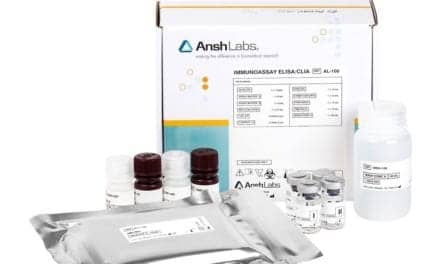Analysis of cardiac troponin from more than 4,000 patients with stable ischemic heart disease using a single-molecule counting technology developed by Singulex Inc, Alameda, Calif, has demonstrated utility and clinical information for the analysis of cardiac health.
In stable patients with recent acute coronary syndrome, researchers used single-molecule counting (SMC) of cardiac troponin I (cTnI) to identify patients’ risk for worsening of their cardiovascular disease.1 Additionally, the Singulex-developed high-sensitivity cTnI biomarker demonstrated the potential to guide physician and patient decisions about how aggressive preventive therapy should be.
The findings are from a substudy of the PROVE IT-TIMI 22 study led by Marc P. Bonaca, MD, MPH, and David Morrow, MD, at Brigham and Women’s Hospital and Harvard Medical School, and published in the Journal of the American College of Cardiology. PROVE-IT TIMI 22 was originally designed to test the efficacy of intensive versus moderate statin therapy in patients with stable coronary artery disease. The analysis assessed cTnI levels with Singulex’s proprietary SMC technology. A total of 4,162 blood plasma samples from the study were stored and tested with Singulex’s cTnI research use only assay.
“Our findings support the potential broadening of a paradigm from viewing cardiac troponin solely as a transiently elevated diagnostic marker in the setting of acute injury to also using the information as a marker of ongoing heightened cardiovascular risk,” says Bonaca, principal investigator of the study. “This knowledge is particularly relevant in stable patients with ischemic heart disease, among whom there may be opportunities for more-intensive preventive therapy.”
Data show a gradient of risk for cardiovascular death or developing heart failure across differing concentrations of cTnI. This gradient of risk was maintained even among patients with cTnI concentrations <9 pg/mL. Additionally, among patients with cTnI >9 pg/mL there was an absolute risk reduction of 3.5% in patients treated with intensive statin therapy. Among patients with cTnI <9 pg/mL, the risk reduction was only 0.44% with intensive statin therapy.
Collaboration with clinical investigators has shown that the Singulex test for cTnI can be used to better manage care and treatment decisions for patients afflicted with cardiovascular disease.
“We find it remarkable that Singulex’s SMC-powered cTnI assay could clearly identify these patients’ future risk for worsening of their disease,” says John Todd, chief scientific officer at Singulex. “This is an important study that shows how our SMC-powered cTnI assay can potentially be used to help physicians choose the aggressiveness of preventive therapy in patients with stable cardiac disease.”
SMC technology is available only from Singulex via the company’s CLIA-registered laboratory. The cTnI test has been developed for use on the company’s Sgx Clarity in vitro diagnostic platform, which is currently undergoing evaluation in Europe and is not yet available for commercial sale.
For more information, visit Singulex.
REFERENCE
- Bonaca MP, O’Malley RG, Jarolim P, et al. Serial cardiac troponin measured using a high-sensitivity assay in stable patients with ischemic heart disease. J Am Coll Cardiol. 2016;68(3):322–323; doi:10.1016/j.jacc.2016.04.046.







